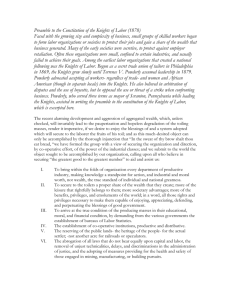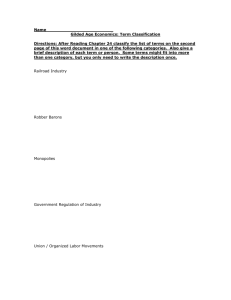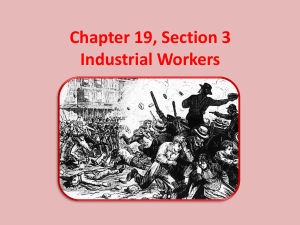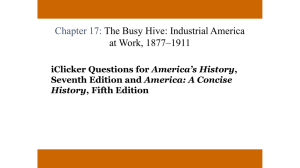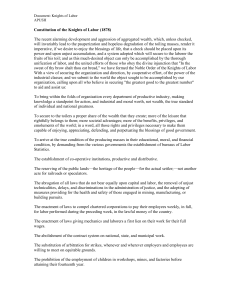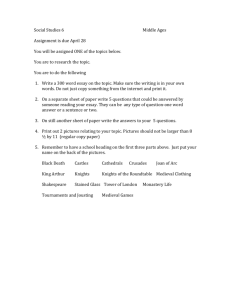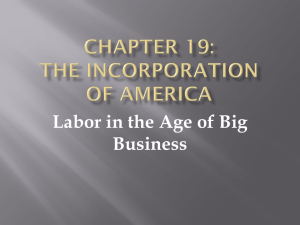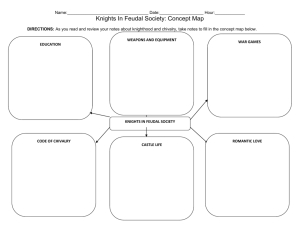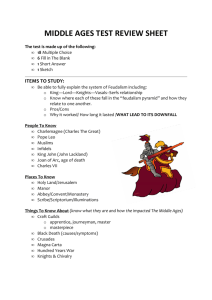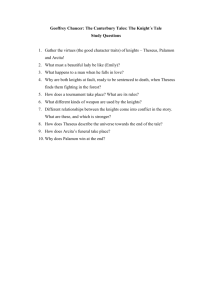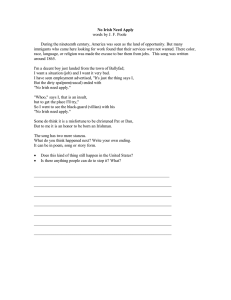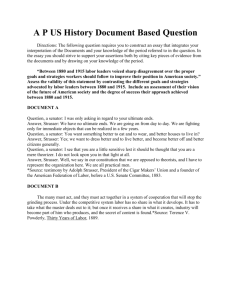Knights of Labor: Terence V. Powderly's Definition
advertisement
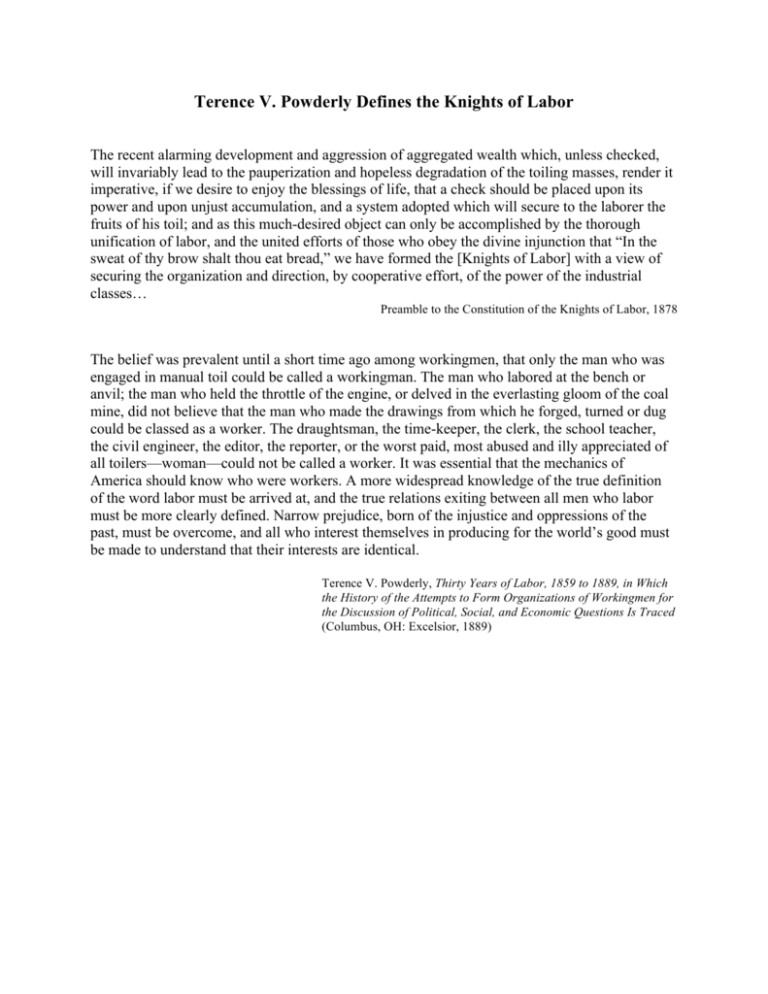
Terence V. Powderly Defines the Knights of Labor The recent alarming development and aggression of aggregated wealth which, unless checked, will invariably lead to the pauperization and hopeless degradation of the toiling masses, render it imperative, if we desire to enjoy the blessings of life, that a check should be placed upon its power and upon unjust accumulation, and a system adopted which will secure to the laborer the fruits of his toil; and as this much-desired object can only be accomplished by the thorough unification of labor, and the united efforts of those who obey the divine injunction that “In the sweat of thy brow shalt thou eat bread,” we have formed the [Knights of Labor] with a view of securing the organization and direction, by cooperative effort, of the power of the industrial classes… Preamble to the Constitution of the Knights of Labor, 1878 The belief was prevalent until a short time ago among workingmen, that only the man who was engaged in manual toil could be called a workingman. The man who labored at the bench or anvil; the man who held the throttle of the engine, or delved in the everlasting gloom of the coal mine, did not believe that the man who made the drawings from which he forged, turned or dug could be classed as a worker. The draughtsman, the time-keeper, the clerk, the school teacher, the civil engineer, the editor, the reporter, or the worst paid, most abused and illy appreciated of all toilers—woman—could not be called a worker. It was essential that the mechanics of America should know who were workers. A more widespread knowledge of the true definition of the word labor must be arrived at, and the true relations exiting between all men who labor must be more clearly defined. Narrow prejudice, born of the injustice and oppressions of the past, must be overcome, and all who interest themselves in producing for the world’s good must be made to understand that their interests are identical. Terence V. Powderly, Thirty Years of Labor, 1859 to 1889, in Which the History of the Attempts to Form Organizations of Workingmen for the Discussion of Political, Social, and Economic Questions Is Traced (Columbus, OH: Excelsior, 1889)
